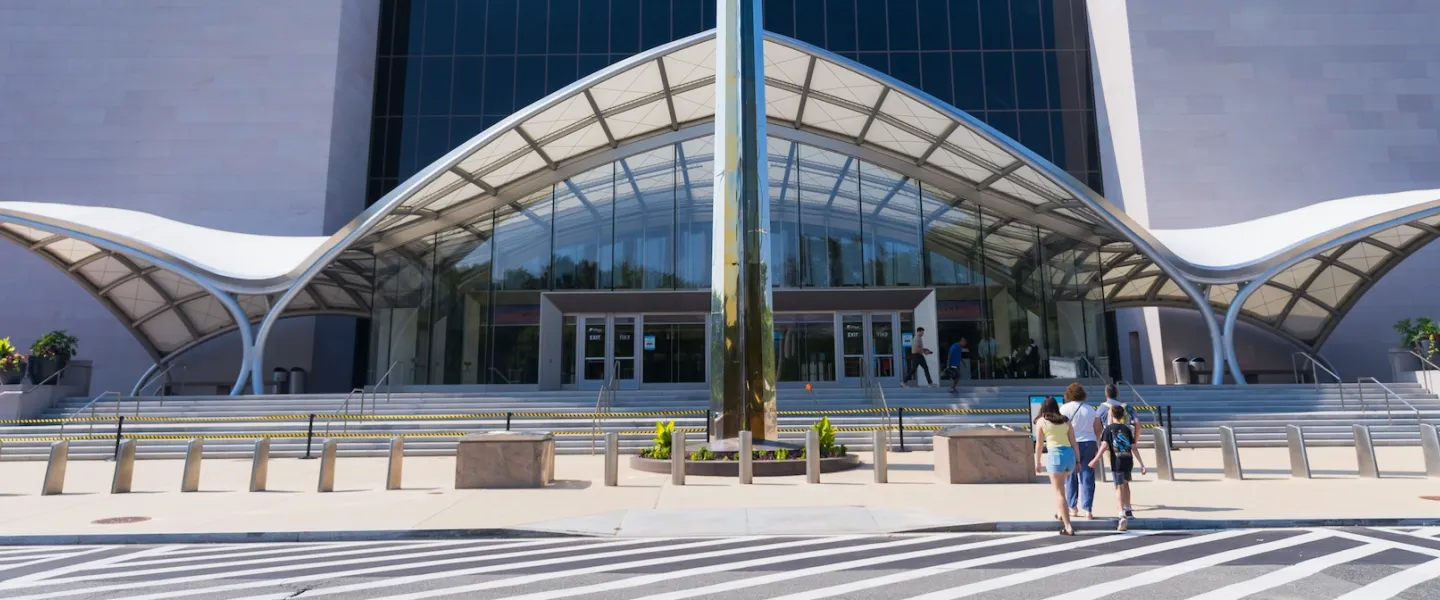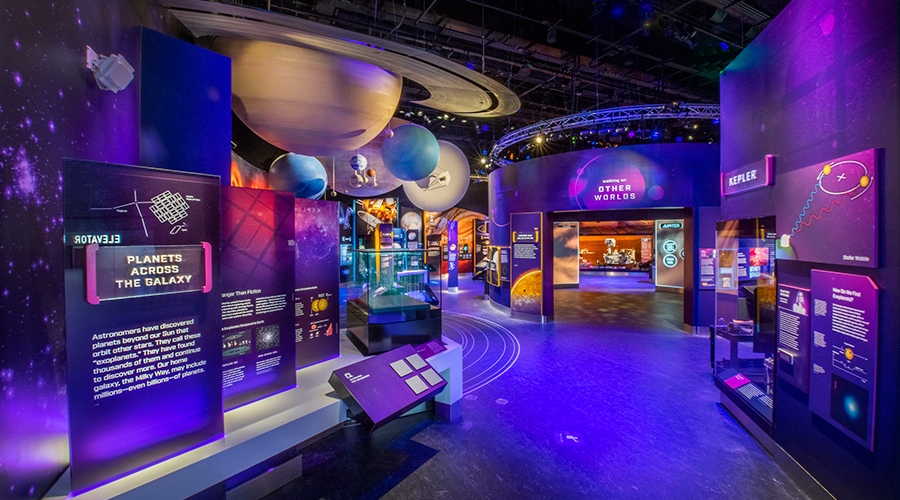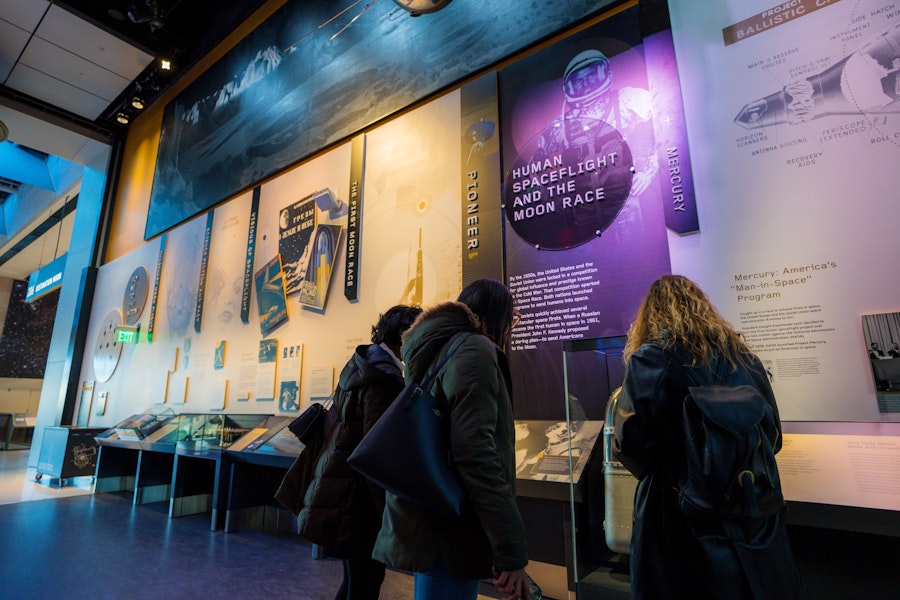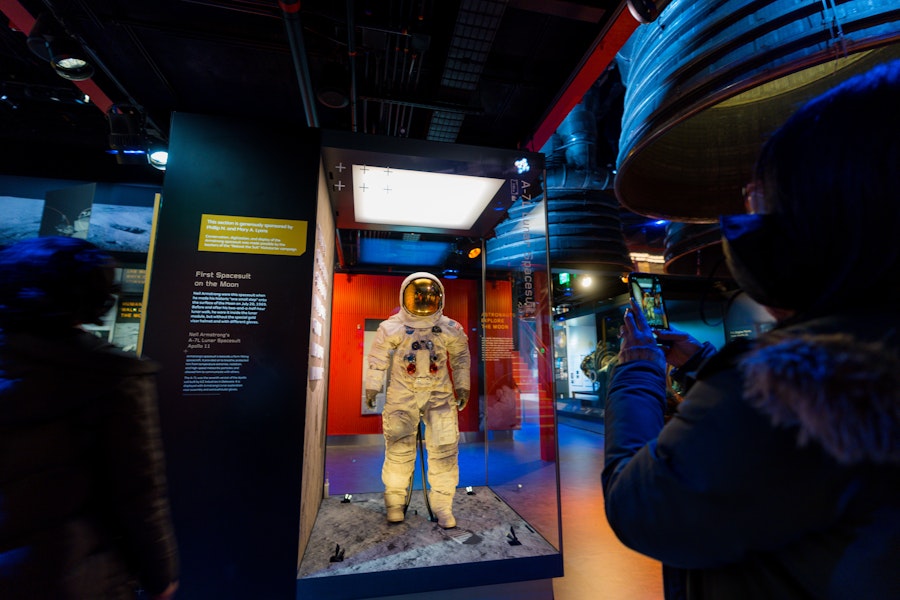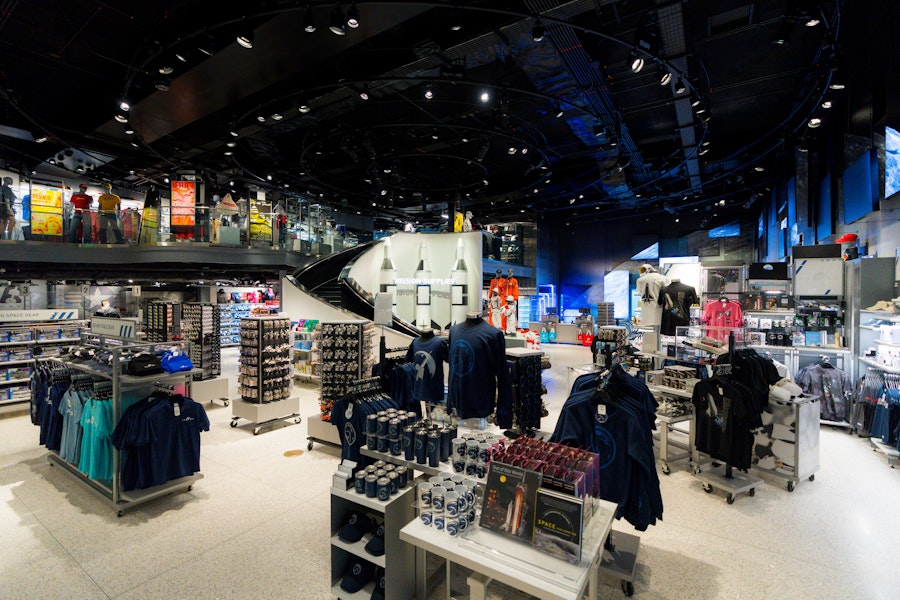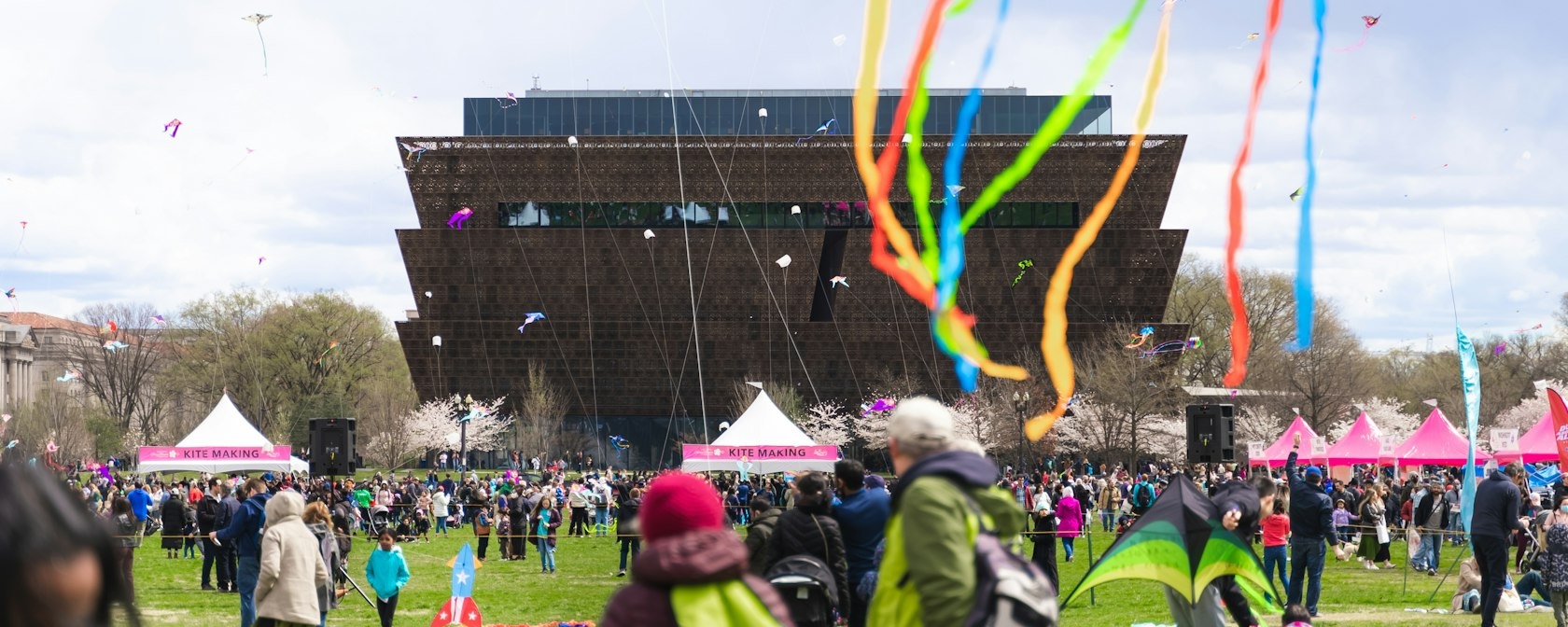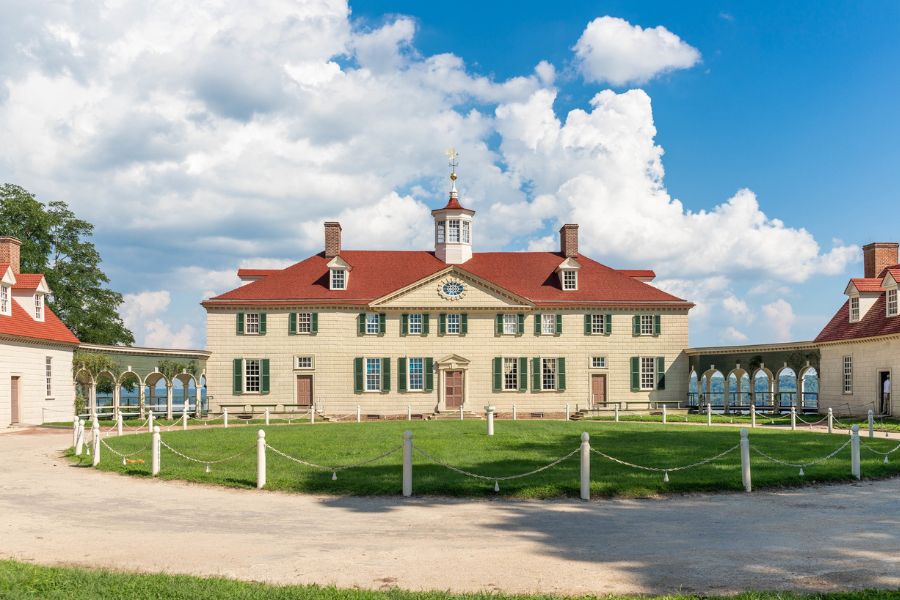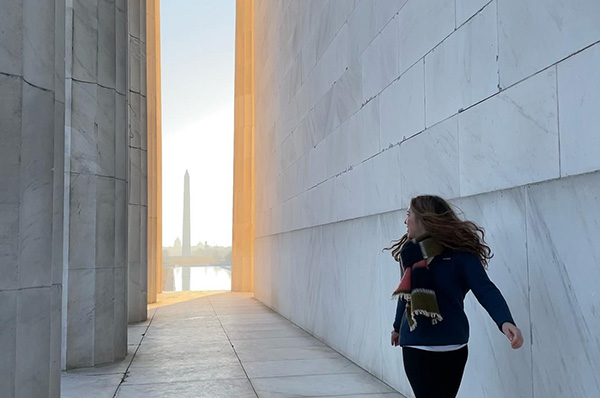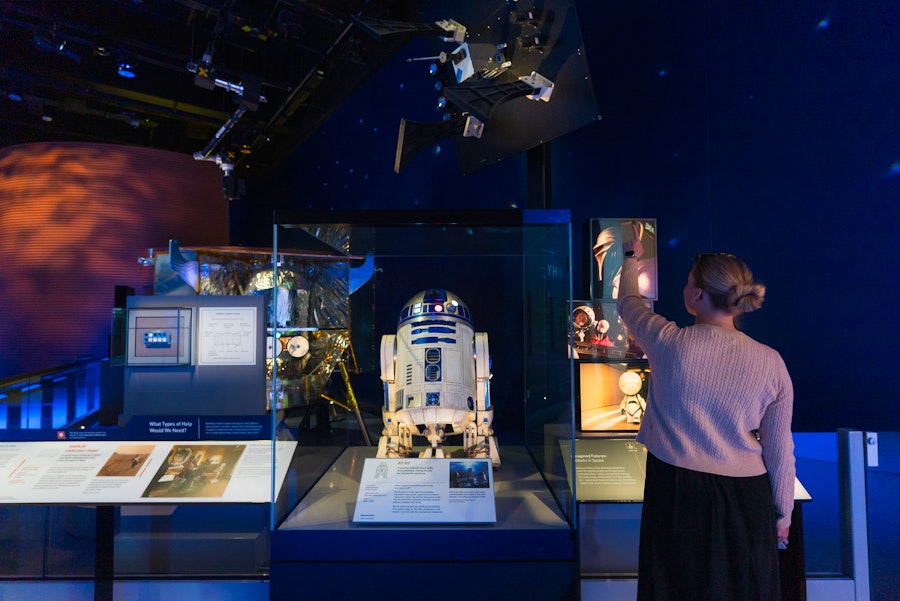
The National Air and Space Museum in Washington, DC is one of the most popular museums in the world.
Along with the Udvar-Hazy Center, the museum attracts millions of aviation fans, space enthusiasts and curious visitors each year, making it a must-see destination in the nation's capital. Plan your visit by reserving free timed-entry tickets to explore the museum’s iconic space and newly unveiled exhibitions, showcasing the wonders of aviation and space exploration.
The museum remains operational and is currently undergoing a large-scale, multi-year renovation that will introduce new galleries and public spaces, both reimagined and brand-new. Learn more about the transformation.
Be sure to check out our guide to accessibility for DC's Smithsonian institutions.

What's new at the National Air & Space Museum? Are there any ongoing renovations or new exhibits opening?
The renovation of all 20 galleries, which began in 2018, will include the unveiling of five new exhibitions, the Lockheed Martin IMAX Theater and a redesigned entrance on July 28. The project as a whole is scheduled to conclude next year on July 1 – the 50th anniversary of the museum in Washington and the 250th anniversary of the United States.
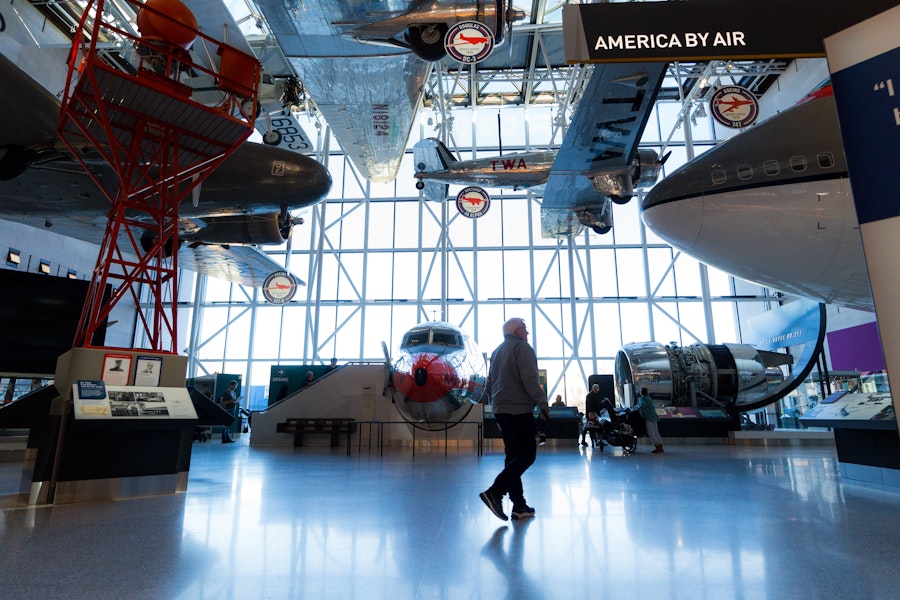
What is the National Air & Space Museum?
Glimpse the 1903 Wright Flyer, run your hands over moon rock and experience the larger-than-life world of aviation and space travel at the National Air and Space Museum. Since opening on the National Mall in 1976, this hub of all things flight has educated and inspired future generations of pilots and astronauts from around the world. The museum (along with its second location, the Udvar-Hazy Center, in Chantilly, Va.) contains the largest and most significant collection of aviation and space artifacts in the world. All components of human flight are on display, including related art and archival materials. Families shouldn't miss the kids' areas, where littles can learn through hands-on activities.
What are the opening hours of the National Air and Space Museum? Do I need tickets?
Regular hours are 10 a.m. – 5:30 p.m.
Admission is always free, and easy-to-reserve timed-entry tickets are required. Read the ticket FAQs for more info.
Where is the National Air and Space Museum located? How do I get there?
The museum is located on Jefferson Drive, between 4th and 7th Streets SW.
The easiest way to reach the museum is via Metrorail or Metrobus. The closest Metro station is L’Enfant Plaza (Blue, Green, Orange, Silver and Yellow lines). Learn more about the museum's accessibility features on its website.
The Museum’s second facility, the Steven F. Udvar-Hazy Center is located just south of Dulles Airport’s runways in Fairfax County, Virginia. It is open daily from 10 a.m. – 5:30 p.m. Visit the Smithsonian's Udvar-Hazy Center website for more information.
What’s inside the National Air and Space Museum?
The Air and Space Museum takes visitors to the sky, showcasing the amazing technological achievements that have progressed aviation and space exploration throughout the last century.
The historical objects on display are breathtaking – fundamental to the story of flight.
- R2D2 resides inside one of the museum's newest exhibits.
- The 1903 Wright Flyer, which completed the world’s first successful flight
- Charles Lindbergh’s Spirit of St. Louis, the first aircraft to complete a nonstop flight from New York to Paris, is closer to viewers than ever before. The cockpit door is ajar at the request of Lindbergh himself.
- The Apollo 11 Command Module Columbia, the only portion of the Apollo 11 spacecraft to return to Earth, is currently at the Udvar-Hazy Center.
- Visitors can also see the spacesuit astronaut Neil Armstrong wore during his mission to the moon and touch a sample of a lunar rock brought back from the Apollo 17 mission in 1972.
Plus, thousands of artifacts are back on display as a part of the 2025 unveiling.
- Returning artifacts include the Spirit of St. Louis, the North American X-15, John Glenn’s Mercury Friendship 7 capsule, Apollo Lunar Module 2 and the touchable moon rock.
- New additions include the Sopwith F.1 Camel, Virgin Galactic’s RocketMotorTwo, a Blue Origin New Shepard crew capsule mockup and a Goddard 1935 A series rocket are among new additions to the galleries.
- Exciting new exhibits include Futures in Space, World War I: The Birth of Military Flight and more.
Browse the full lineup of exhibitions, current and upcoming.
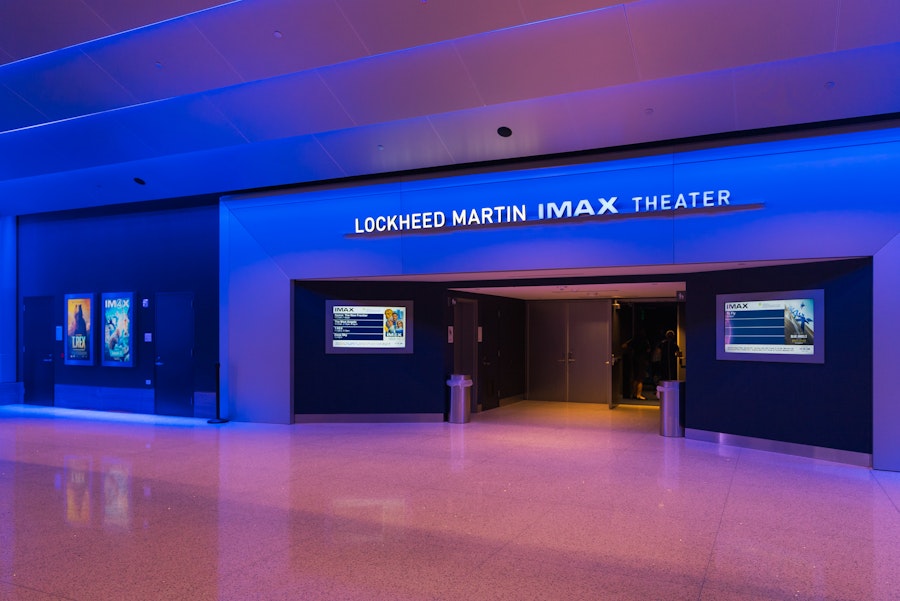
How can I visit the Planetarium and IMAX Theater?
While most regularly scheduled Northrop Grumman Planetarium shows require paid entry tickets, there are a handful of monthly shows that are free to attend, including family-friendly favorite Big Bird's Adventure. Whichever you choose, tickets must be picked up on-site at the box office.
The Lockheed Martin IMAX Theater, newly reopened as of July 2025, is a unique way to see Hollywood films. The facility now touts improved sound and picture quality, new seats and an updated lobby, plus perks like ticket pre-ordering and select-a-seat options for both 2D and 3D screenings.
What are my dining and shopping options at the Air and Space Museum?
Mars Café, located on the lower level, opens daily from 11 a.m. until 5 p.m. The Museum Store stocks gift shop favorites that are out-of-this-world, including spacecraft replicas, glow-in-the-dark stars, meteorite fragments, telescope kits, books and more.
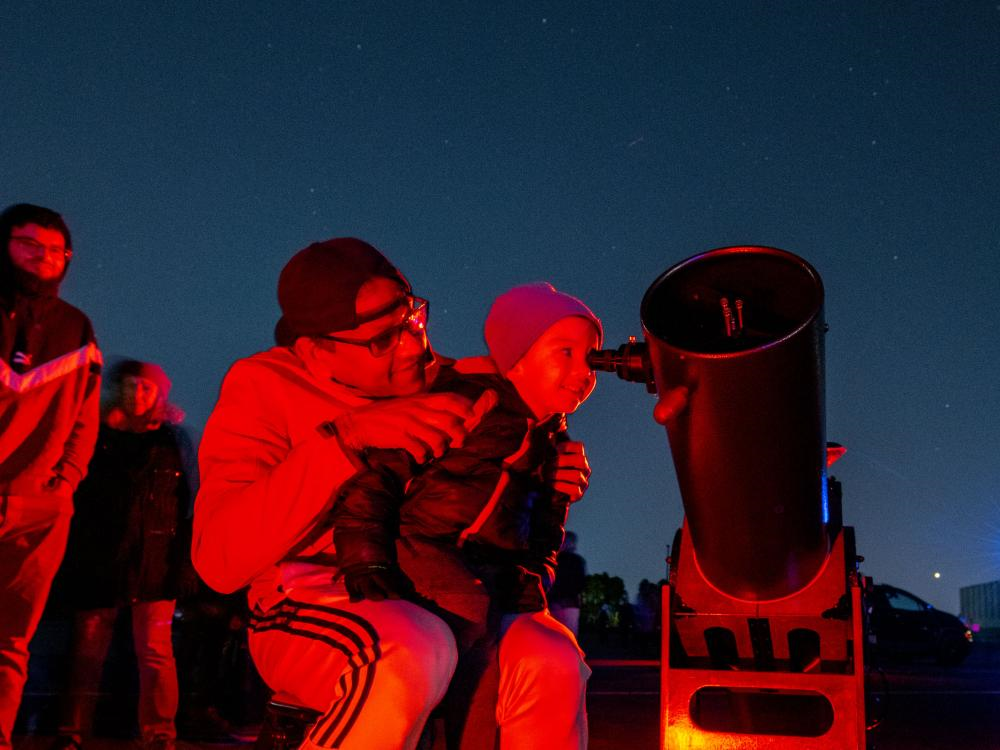
Stop by a stellar Only1DC event
Look through the lens of a high-powered telescope and watch as celestial bodies come into focus. Throughout the year, astronomy program events like daytime sun-gazing at the Museum (Fridays and Saturdays) and nighttime stargazing at the Hazy Center (monthly) bring out volunteer experts – many of whom share their personal telescopes – to give families, couples and curious visitors a taste of the cosmos.
The calendar is always full: in addition to astronomy events and planetarium shows, you can also catch children's Story Time and scientific lecture events.

